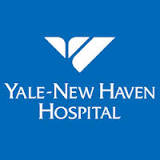Deceased Donor Biomarkers and Recipient Outcomes
| Status: | Active, not recruiting |
|---|---|
| Conditions: | Other Indications, Renal Impairment / Chronic Kidney Disease, Hospital |
| Therapuetic Areas: | Nephrology / Urology, Other |
| Healthy: | No |
| Age Range: | Any |
| Updated: | 1/19/2018 |
| Start Date: | May 2010 |
| End Date: | December 2018 |
Deceased Donor Urinary Biomarkers to Predict Kidney Transplant Outcomes
Compared to chronic dialysis, kidney transplantation provides recipients with longer survival
and better quality of life at a lower cost. In order to meet increasing demands for kidney
allografts, kidneys from older and sicker donors are being procured. This has led to greater
discard rates of donated kidneys as well as more complications for recipients, including
shorter allograft survival. Available clinical models to predict kidney allograft quality
have poor prognostic ability and do not asses the degree of kidney allograft injury. However,
allograft injury near the time of procurement can lead to major consequences for the
transplant recipient: greater risks of delayed graft function, poor allograft function and
premature loss of the transplant. Our proposal is based on the hypotheses that novel
biomarkers measured in donor urine and transport media at the time of procurement can assess
acute and chronic kidney injury and that distinct biomarker patterns will predict allograft
survival. In collaboration with five organ procurement organizations, we will collect urine
samples from consecutive deceased donors and samples of transport solution for every pumped
kidney. We will measure markers of injury, repair, inflammation and fibrosis. We will
determine mortality and allograft survival in all patients by linkage to the United Network
for Organ Sharing (UNOS) database (Overall Cohort). Additionally, we will perform a detailed
chart review of a subset of recipients (detailed cohort) and will also examine associations
between biomarkers and longitudinal graft function over five years after transplant. Early,
non-invasive and rapid assessment of donor kidney injury could drive better allocation
decisions and potentially reduce the rates of post-transplant complications. Further, these
new tools could provide a platform for clinical trials of therapies for allografts and kidney
transplant recipients aimed at ameliorating allograft injury.
and better quality of life at a lower cost. In order to meet increasing demands for kidney
allografts, kidneys from older and sicker donors are being procured. This has led to greater
discard rates of donated kidneys as well as more complications for recipients, including
shorter allograft survival. Available clinical models to predict kidney allograft quality
have poor prognostic ability and do not asses the degree of kidney allograft injury. However,
allograft injury near the time of procurement can lead to major consequences for the
transplant recipient: greater risks of delayed graft function, poor allograft function and
premature loss of the transplant. Our proposal is based on the hypotheses that novel
biomarkers measured in donor urine and transport media at the time of procurement can assess
acute and chronic kidney injury and that distinct biomarker patterns will predict allograft
survival. In collaboration with five organ procurement organizations, we will collect urine
samples from consecutive deceased donors and samples of transport solution for every pumped
kidney. We will measure markers of injury, repair, inflammation and fibrosis. We will
determine mortality and allograft survival in all patients by linkage to the United Network
for Organ Sharing (UNOS) database (Overall Cohort). Additionally, we will perform a detailed
chart review of a subset of recipients (detailed cohort) and will also examine associations
between biomarkers and longitudinal graft function over five years after transplant. Early,
non-invasive and rapid assessment of donor kidney injury could drive better allocation
decisions and potentially reduce the rates of post-transplant complications. Further, these
new tools could provide a platform for clinical trials of therapies for allografts and kidney
transplant recipients aimed at ameliorating allograft injury.
Our study has several key processes that we have developed and tested to address our
scientific aims:
1. Enrollment
We will collect urine samples from approximately 1600 deceased donors and approximately
600 perfusate samples from machine-pumped kidneys from participating organ procurement
organizations (OPOs). We estimate that our final donor group will be comprised of 55%
standard criteria donors, 25% expanded-criteria donors and 10% donors after cardiac
death. Approximately, 20% of the kidneys will be discarded.
2. Donor Data
Donor variables come from two sources: the United Network for Organ Sharing (UNOS)
database and detailed data abstraction from each OPO. The UNOS database provides data on
all donors with demographics and other important clinical characteristics. The
additional data collected by the OPO staff captures granular information on events
surrounding donor death, which are not included in the UNOS database. These data will be
available on all enrolled donors and include variables such as serial serum creatinine,
nadir blood pressures, medication and vasopressor use, and machine pump parameters.
3. Overall Recipient Cohort
Over 2000 recipients will have received kidneys from the deceased donors in our study.
The Overall Cohort will comprise all of these recipients General demographic and
clinical characteristics about recipients in the Overall Cohort will come from the UNOS
database. For the Overall Recipient Cohort, we will ascertain delayed graft function
(DGF) through center reports to UNOS. We will ascertain allograft failure through center
reports to UNOS and new episodes of wait-listing and re-transplant collected by UNOS,
Recipient mortality will be ascertained through the center reports to UNOS/SRTR and
through the Social Security Death Master File.
4. Detailed Recipient Cohort
A subset of over 1100 recipients of the Overall Cohort who had transplantation at any of
our collaborating transplant centers will comprise this cohort. For the Detailed
Subcohort, on-site coordinators will perform manual chart review and abstract more
extensive data about each recipient including dialysis indications post-transplant,
comorbidities, and specific doses of immunosuppression. For the Detailed Subcohort, we
will also collect data on clinical events for up to five years after transplantation,
including acute rejection and estimated glomerular filtration rate at the time of
transplantation and at months 1, 3, 6, 12, 18, 24, 30, 36, 48 and 60 months after
transplant.
5. Novel biomarkers will be measured in urine and perfusate
scientific aims:
1. Enrollment
We will collect urine samples from approximately 1600 deceased donors and approximately
600 perfusate samples from machine-pumped kidneys from participating organ procurement
organizations (OPOs). We estimate that our final donor group will be comprised of 55%
standard criteria donors, 25% expanded-criteria donors and 10% donors after cardiac
death. Approximately, 20% of the kidneys will be discarded.
2. Donor Data
Donor variables come from two sources: the United Network for Organ Sharing (UNOS)
database and detailed data abstraction from each OPO. The UNOS database provides data on
all donors with demographics and other important clinical characteristics. The
additional data collected by the OPO staff captures granular information on events
surrounding donor death, which are not included in the UNOS database. These data will be
available on all enrolled donors and include variables such as serial serum creatinine,
nadir blood pressures, medication and vasopressor use, and machine pump parameters.
3. Overall Recipient Cohort
Over 2000 recipients will have received kidneys from the deceased donors in our study.
The Overall Cohort will comprise all of these recipients General demographic and
clinical characteristics about recipients in the Overall Cohort will come from the UNOS
database. For the Overall Recipient Cohort, we will ascertain delayed graft function
(DGF) through center reports to UNOS. We will ascertain allograft failure through center
reports to UNOS and new episodes of wait-listing and re-transplant collected by UNOS,
Recipient mortality will be ascertained through the center reports to UNOS/SRTR and
through the Social Security Death Master File.
4. Detailed Recipient Cohort
A subset of over 1100 recipients of the Overall Cohort who had transplantation at any of
our collaborating transplant centers will comprise this cohort. For the Detailed
Subcohort, on-site coordinators will perform manual chart review and abstract more
extensive data about each recipient including dialysis indications post-transplant,
comorbidities, and specific doses of immunosuppression. For the Detailed Subcohort, we
will also collect data on clinical events for up to five years after transplantation,
including acute rejection and estimated glomerular filtration rate at the time of
transplantation and at months 1, 3, 6, 12, 18, 24, 30, 36, 48 and 60 months after
transplant.
5. Novel biomarkers will be measured in urine and perfusate
Inclusion Criteria:
- Donor Cohort: Appropriate informed consent for research according to OPO policies
- Recipient Cohorts: Any recipient of at least one kidney from a deceased donor enrolled
by our participating OPOs
Exclusion Criteria:
• Donor Cohort: Lack of adequate biospecimen quantity or quality as per protocol
We found this trial at
17
sites
Univ of Pennsylvania Penn has a long and proud tradition of intellectual rigor and pursuit...
Click here to add this to my saved trials
Click here to add this to my saved trials
University of Maryland Medical Center Founded in 1823 as the Baltimore Infirmary, the University of...
Click here to add this to my saved trials
Click here to add this to my saved trials
Click here to add this to my saved trials
Yale-New Haven Hospital Relying on the skill and expertise of more than 4,500 university and...
Click here to add this to my saved trials
Click here to add this to my saved trials
Click here to add this to my saved trials
Click here to add this to my saved trials
161 Fort Washington Avenue
New York, New York 10032
New York, New York 10032
Click here to add this to my saved trials
Click here to add this to my saved trials
Click here to add this to my saved trials
Newark Beth Israel Medical Center Newark Beth Israel Medical Center, a regional care, teaching hospital...
Click here to add this to my saved trials
Click here to add this to my saved trials
Click here to add this to my saved trials
Thomas Jefferson University Hospital Our hospitals in Center City Philadelphia share a 13-acre campus with...
Click here to add this to my saved trials
Click here to add this to my saved trials




